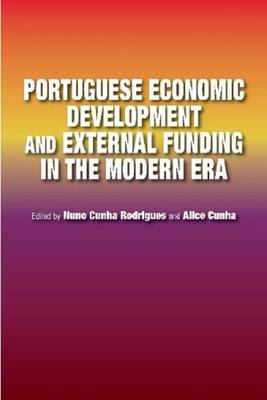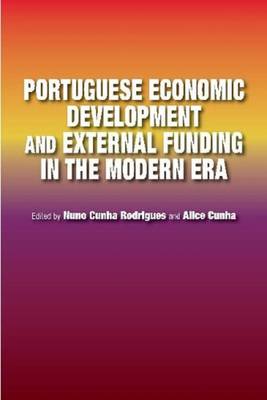
- Retrait gratuit dans votre magasin Club
- 7.000.000 titres dans notre catalogue
- Payer en toute sécurité
- Toujours un magasin près de chez vous
- Retrait gratuit dans votre magasin Club
- 7.000.0000 titres dans notre catalogue
- Payer en toute sécurité
- Toujours un magasin près de chez vous
Portuguese Economic Development and External Funding in the Modern Era
132,95 €
+ 265 points
Description
After World War II, with the triumph of multilateralism, several international organizations were created, including two which would be of special importance for the external funding of the Portuguese economy in the second half of the twentieth century and in the early twenty-first. The European Union and the International Monetary Fund have been responsible for providing large amounts of funding, both in periods of economic development and during times of financial crisis. This contributory volume provides a thorough analysis on specific case studies: the Marshall Plan (1949-1952); the three IMF interventions (in the seventies, eighties and the 2011 bailout); the implementation of the first EU funds Portugal received prior to accession; and the debate on the new framework for European funds for the period 2021-2027. These case study analyses provide an overview of the legal, economic and financial implications that such external funding has on the country at different times and in different economic contexts. Of particular import at all times is the public finance legal framework, and this is especially the case for the new European funding structures, which has attracted some criticism. And for any future IMF financial assistance and its political implementation implications. Portuguese Economic Development and External Funding in the Modern Era provides important insights into economic development, crisis management, financial assistance and European investment funds. While the work is Portuguese-centred, the topics investigated and the means of analysis adopted are applicable to other countries. This is the first book to address economic development and external funding, and it will inevitably be used as a template for future research.
Spécifications
Parties prenantes
- Editeur:
Contenu
- Nombre de pages :
- 264
- Langue:
- Anglais
- Collection :
Caractéristiques
- EAN:
- 9781789761320
- Date de parution :
- 27-10-21
- Format:
- Livre relié
- Format numérique:
- Genaaid
- Dimensions :
- 157 mm x 221 mm
- Poids :
- 476 g

Les avis
Nous publions uniquement les avis qui respectent les conditions requises. Consultez nos conditions pour les avis.





